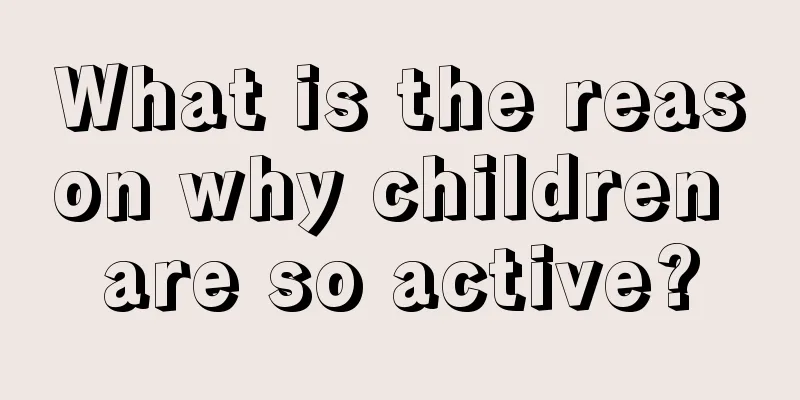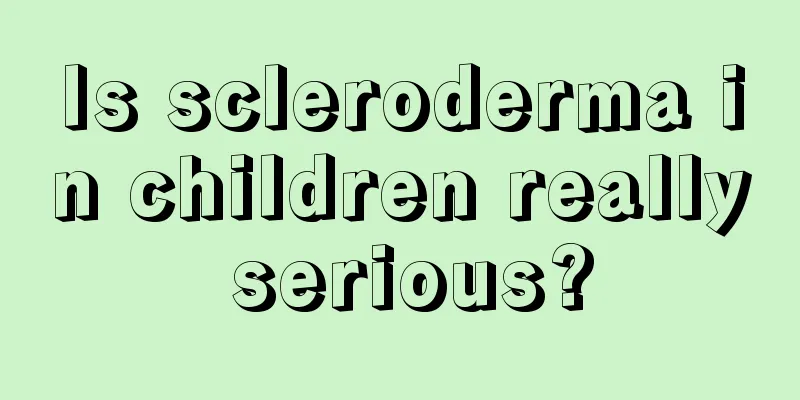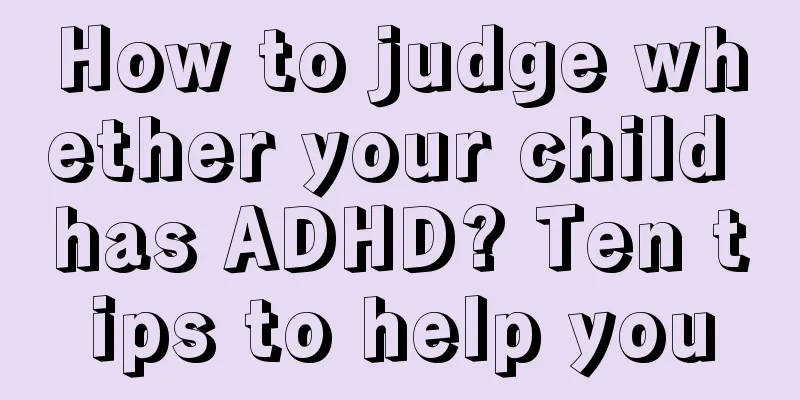What is the reason why children are so active?

|
Children's hyperactivity is just a sign of youth and liveliness, but ADHD is different. It is a disease that affects the healthy growth of children. Therefore, mothers are particularly worried about their children's hyperactivity. In fact, children's hyperactivity is caused by the mother's history of smoking or alcoholism, genetic factors, severe lead poisoning, and social and psychological factors. Mothers should pay special attention to the health of their children. 1. Reasons why children are active (1) The mothers of the affected children often have more complications during pregnancy or perinatal period and often have a history of heavy smoking or alcohol abuse. (2) Genetic factors, such as: the blood brothers and fathers of the children have more hyperactivity or inattention; the incidence of monozygotic twins is as high as 51% to 64%; relatives are also more likely to have alcoholism, antisocial personality and hysteria (3) Although the research results of neurotransmitter enzymes are often contradictory, they are still a way to study the cause of this disease. (4) Severe lead poisoning can cause fatal toxic encephalopathy, dementia and other neurological damage, but there is no conclusion yet on whether mild lead poisoning can cause ADHD. (5) The influence of social and family psychological factors, such as adverse social environment or family conditions (broken family, economic poverty, crowded housing, parents with bad personalities, alcoholism, drug abuse, mental illness, etc.) can all become the cause of the disease and affect the development of the disease and prognosis. (6) Other factors: Nutritional problems, vitamin deficiency, food allergies, food flavorings or added artificial colors, etc. may make children more susceptible to ADHD. How to diagnose ADHD in children? 1. Inability to concentrate: The child's attention span is short and he is easily distracted by external factors. He cannot complete a task from beginning to end. He does not pay attention in class and often looks around or is distracted. 2. Excessive activity: unable to sit still in class, making many small movements and talking a lot, likes to make trouble, often quarrels and fights with classmates, etc.; children often climb up and down, run and jump around without knowing the danger. 3. Impulsiveness and willfulness: Children with this disorder have poor self-control and are prone to emotional instability. They become agitated, irritable, crybaby, and often lose their temper. 4. Difficulty in performing fine and coordinated movements: The children’s bodies are not as coordinated as those of normal children, their movements are clumsy, they are not flexible when buttoning, lacing shoes, sharpening pencils, etc., and they do not walk in a straight line. 5. Learning difficulties: Although the children have normal intelligence, they often have learning difficulties and poor academic performance due to difficulties in concentrating and poor self-control. |
<<: What are the symptoms of sleep convulsions in children?
>>: What should I do if my baby has dry and hard stools and difficulty defecating?
Recommend
What to do if your child can't eat
The problem of children's eating has also bec...
Lazy mothers raise diligent children
Nowadays, parents protect their children too well...
What kind of milk can make children grow taller?
In order to make their children grow taller, many...
A scientific way to punish children?
Children are naughty by nature, but sometimes whe...
What should I do if a child has an extra blood vessel in his heart?
If a child has an extra blood vessel in his or he...
What are the benefits of children learning art?
Nowadays, many parents hope that their children a...
The reason why baby teeth turn black
Regarding the case of baby's teeth turning bl...
Symptoms of viral fever in children
It is very common to catch a cold and a fever whe...
Diet therapy for allergic asthma in children, these recipes are very valuable
If allergic asthma occurs in children, parents ar...
What to do if your child has itchy eyes
Children's bodies are relatively weak and the...
What should I do if my child’s throat is always inflamed?
Talking too much and the weather getting cold can...
Causes of nosebleeds in one-year-old children
When a child has a nosebleed, every adult is very...
How much milk should a two-month-old baby have?
After the baby is born, the brain and body begin ...
Is it OK for children to eat two eggs a day?
Teenagers are in the stage of human development, ...
The significance of blood sampling from the soles of newborn babies
When many babies are born, the hospital will draw...









